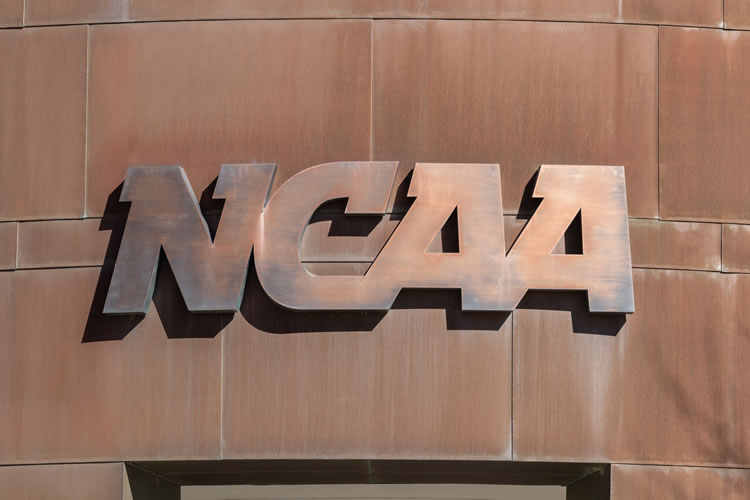Maximizing NIL Without Losing Your Scholarship

Maximizing NIL Without Losing Your Scholarship
The rise of NIL has changed the game for college athletes, offering unprecedented earning potential. However, with great opportunity comes great responsibility. Many athletes and families worry that NIL deals could jeopardize their scholarships or financial aid—especially if the money impacts eligibility or financial need-based assistance. But here’s the good news: it’s possible to maximize your NIL earnings without sacrificing your scholarship or financial aid. The key? Strategy, education, and proactive planning.
This playbook will guide you through the necessary steps to capitalize on NIL, protect your scholarships, and build a strong financial foundation.
1. Understand the Relationship Between NIL and Scholarships
- Athletic Scholarships: Most schools allow athletes to earn NIL income without it affecting their athletic scholarship. However, the NCAA and each individual school may have specific rules.
- Need-Based Aid: NIL income may be considered taxable and can affect eligibility for need-based financial aid (e.g., Pell Grants). Be mindful of how NIL impacts your expected family contribution (EFC) on FAFSA.
- Academic Scholarships: These typically aren’t affected by NIL income unless there’s an income cap tied to the scholarship or you fail to meet academic requirements.
2. Report NIL Income—And Report It Early
- Transparency is key. Report any NIL earnings or deals to your school’s compliance office as soon as possible. This ensures your school is aware and can confirm that your scholarship eligibility isn’t at risk.
- Record everything. Track NIL deals, payments, contract terms, and any related communications. Keep detailed records and make sure you file taxes properly to avoid complications down the line.
Action Step:
Create a digital or physical folder dedicated to NIL contracts, payments, and communications. Make sure your family and trusted advisors have access to review them regularly.
3. Create a Financial Strategy That Doesn’t Depend on NIL
While NIL can provide significant earnings, it’s important not to rely solely on it for your financial security.
- Build emergency savings. Just like in sports, you should always have a backup plan. Set aside a portion of your NIL earnings into a savings account to cover unforeseen expenses or to carry you through any gaps in income.
- Invest early. Put a portion of your NIL earnings into investments, such as a Roth IRA or a 529 College Savings Plan, so that your money works for you long after your NIL opportunities have ended.
4. Separate NIL Earnings From Personal Expenses
While NIL can offer lucrative short-term opportunities, don’t let it become a temptation to overspend.
- Set limits on lifestyle spending. It’s easy to fall into the trap of upgrading your lifestyle with new cars, expensive clothes, or nights out, but this could negatively impact your savings and long-term financial security.
- Use NIL to fund long-term goals. Dedicate NIL earnings for specific purposes like furthering education, supporting family, or investing in professional development.
5. Know What NIL Deals Could Affect Your Eligibility
- Some NIL deals might violate the rules of your athletic association or institution if they conflict with sponsorships that the school has or if the contract is exclusive to a competing brand.
- Certain deals or sponsorships may require you to perform certain actions or make public statements that could affect your eligibility or the relationship with your scholarship provider.
Pro Tip:
Always ask about the terms and conditions of any NIL deal and ask your school’s compliance office to review it if you’re unsure about any conflicts.
6. Keep Your NIL Deals Aligned With Your Values
While NIL is about maximizing earning potential, it’s also an opportunity to build a personal brand that can last far beyond college.
- Be selective. Choose deals that align with your personal brand and values. A great deal that doesn’t align with your core beliefs or the culture of your school can lead to negative consequences.
- Build relationships with brands. Rather than chasing quick cash from any available opportunity, focus on building partnerships with companies that will help grow your career and leave you with a lasting positive reputation.
7. Learn How NIL Can Work With Your Educational Goals
NIL doesn’t just provide financial opportunities—it can also serve as a tool to fund education and personal growth.
- Use NIL earnings for professional development. Instead of splurging on material items, use NIL money for courses, certifications, or networking opportunities that align with your career aspirations.
- Fund career training. If you’re planning to go pro or pursue a career in another field after college, NIL money can help you pay for workshops, classes, or internships that give you an edge in your future profession.
8. Protect Your Income With Legal Advice
Before signing any NIL contracts, it’s crucial to have an attorney review the terms to ensure you understand your rights and obligations.
- Contract review. Have a legal advisor help you understand terms like exclusivity, payment schedules, intellectual property rights, and termination clauses.
- Tax advice. NIL income is taxable, so be sure to speak with a tax professional to plan ahead and avoid surprises when tax season rolls around.
9. Take a Long-Term View on Your Brand and Finances
While it’s tempting to cash in on every NIL opportunity that comes your way, building a sustainable financial future is about balancing short-term gains with long-term strategy.
- Use NIL earnings to establish a foundation for life after sports. Start building an emergency fund, invest in retirement accounts, and put money toward other goals like home ownership or family support.
- Think about legacy. NIL may provide the initial earnings, but the financial habits you build and the relationships you cultivate will determine your long-term success.
10. Keep Communication Open with Your Family and Advisors
NIL decisions are often a team effort—make sure you’re communicating with your family and trusted advisors about all opportunities and risks.
- Stay transparent. Regularly update your family about the NIL deals you’re considering and the financial strategies you’re employing.
- Review together. Include your parents or a financial advisor in reviewing any contracts or major financial moves to ensure you stay aligned with your long-term goals.
Final Thoughts
In the NIL era, athletes who thrive do so with preparation, strategy, and the right team. By understanding how NIL impacts your scholarship, managing your earnings wisely, and using them to build long-term financial stability, you can maximize your opportunities and set yourself up for success. Remember, NIL is just the beginning of your journey—build a foundation that will last far beyond your college career.






